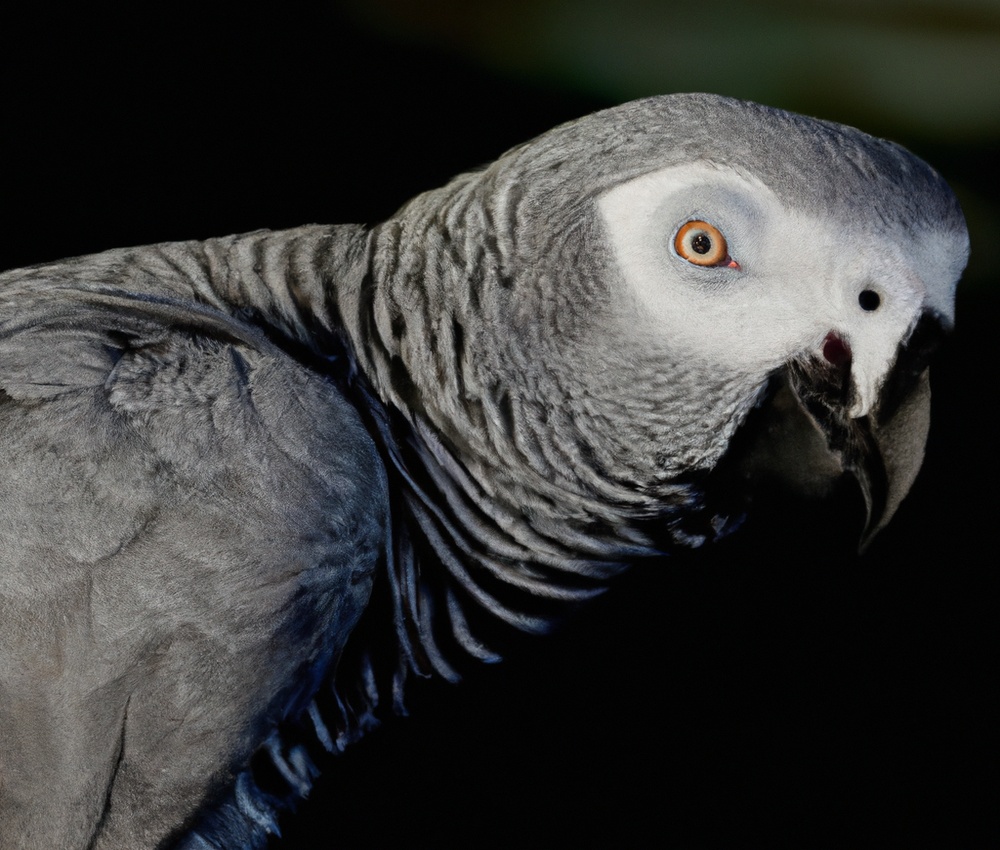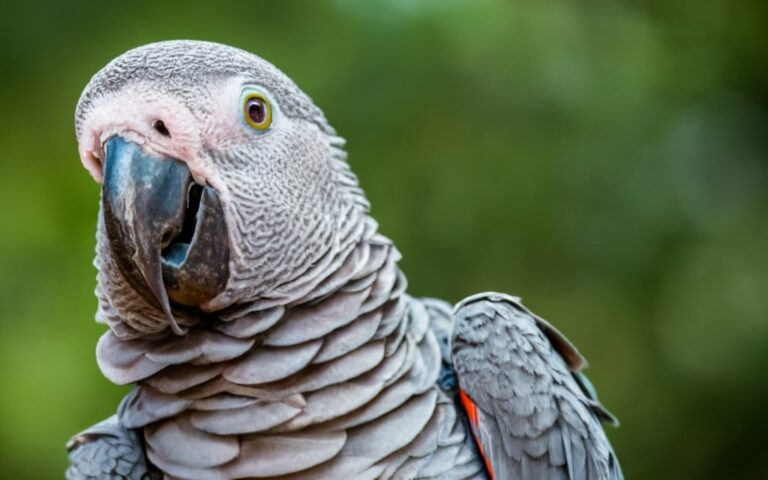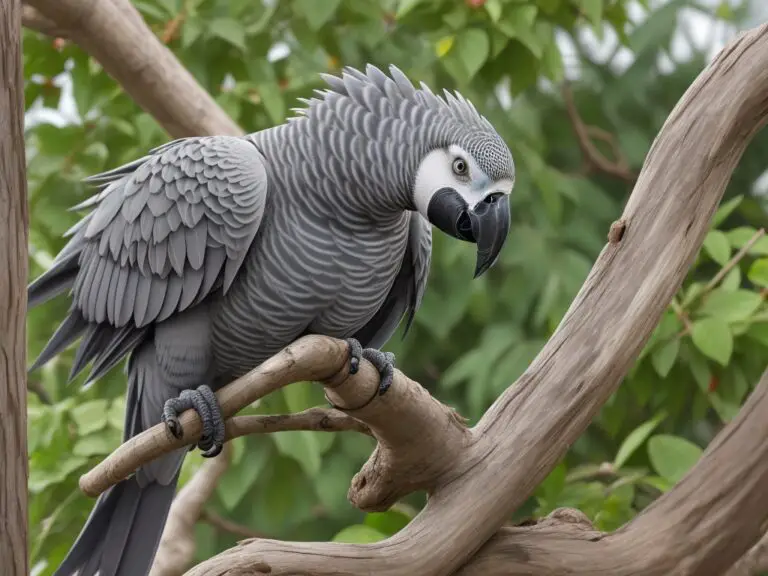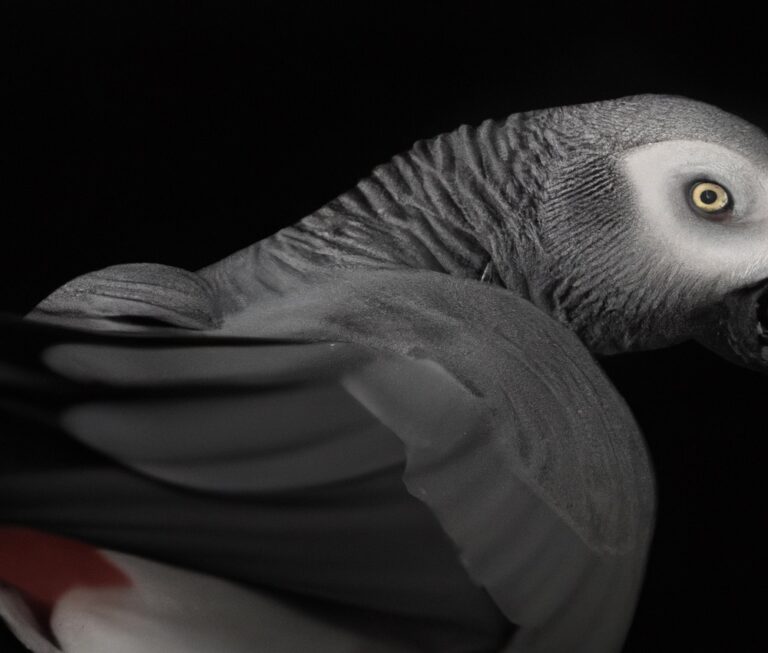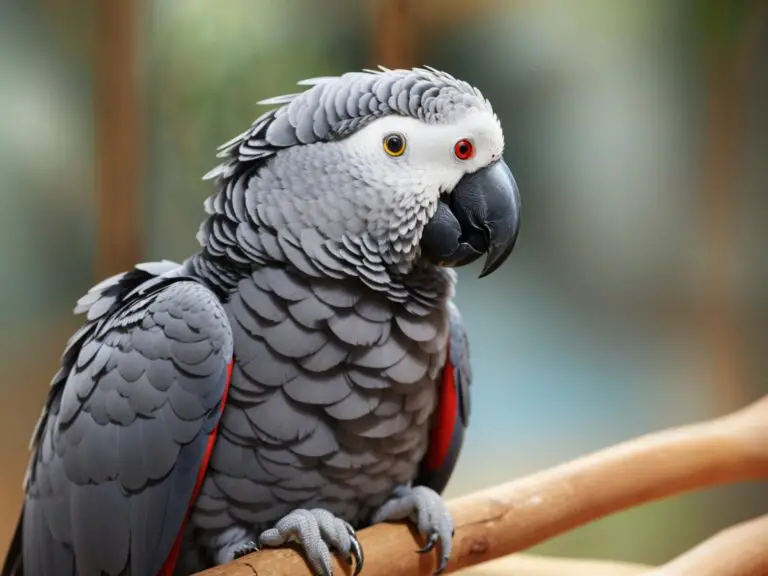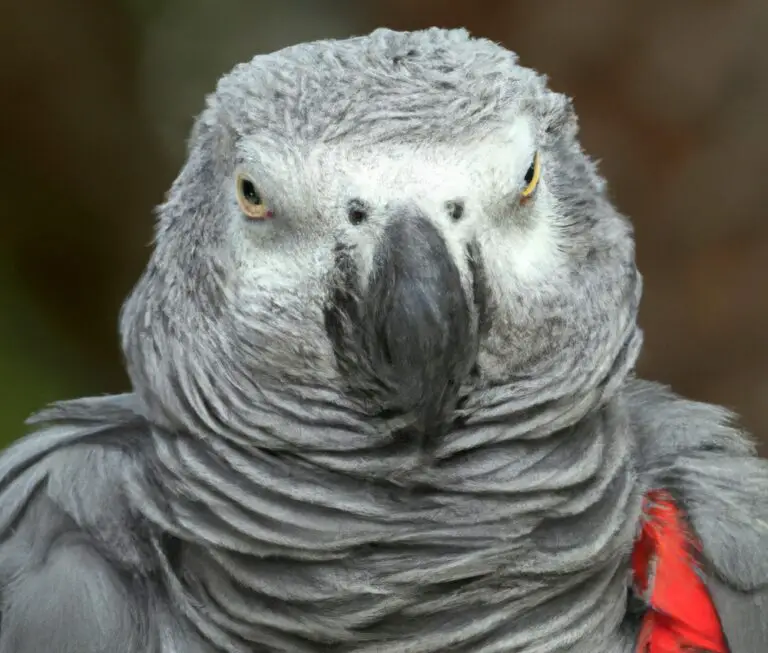How Can I Prevent Obesity In My African Grey Parrot?
Key Takeaways:
- Control your parrot’s diet to prevent obesity.
- Provide regular exercise and mental stimulation for your parrot.
- Limit high-calorie treats and snacks.
- Seek professional guidance for a personalized plan to prevent obesity in your African Grey Parrot.
Are you worried about your African Grey Parrot’s health? If so, you’ve landed in the right place.
Obesity among African Grey Parrots is a growing concern that can impact their overall well-being.
But don’t fret! With a little knowledge and proactive measures, you can help prevent obesity in your intelligent feathered friend. In this article, we’ll delve into the risk factors for obesity, the role of diet and exercise, how to create a healthy meal plan, and tips for keeping your parrot mentally and physically stimulated.
So, let’s dig in and ensure your African Grey Parrot leads a happy and healthy life!
Understanding the Risk Factors for Obesity in African Grey Parrots
Understanding the risk factors for obesity in African Grey Parrots is essential in preventing this condition.
The Importance of Exercise for African Grey Parrots
Exercise is crucial for African Grey Parrots to maintain their physical and mental well-being.
It helps them burn calories, maintain a healthy weight, and prevents obesity.
Regular exercise also stimulates their minds, provides enrichment, and reduces boredom.
Providing ample space and engaging them in interactive activities and training sessions are key in keeping your parrot healthy and happy.
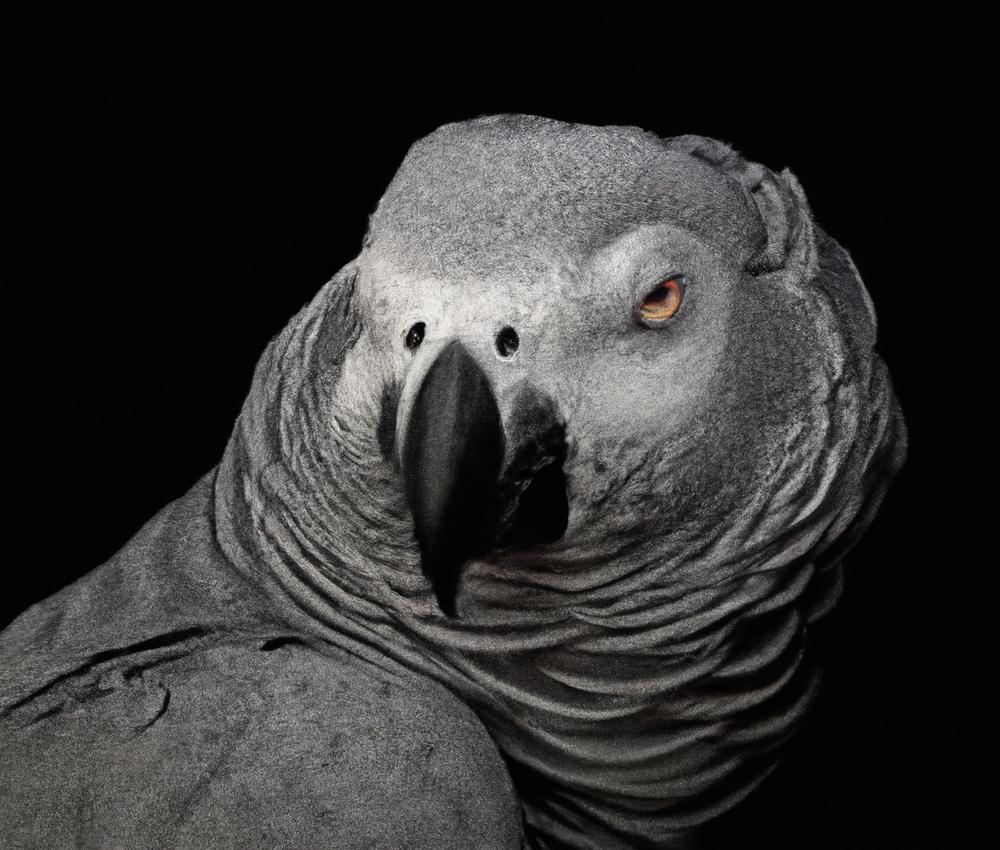
Creating a Healthy Diet Plan for Your African Grey Parrot
Creating a healthy diet plan for your African Grey Parrot is essential for maintaining their overall well-being and preventing obesity.
Understanding Portion Control for Your Parrot’s Meals
Understanding portion control for your parrot’s meals is essential to maintain a healthy weight and prevent obesity.
When measuring your parrot’s food, it’s important to consider their size, activity level, and overall health.
Start with a recommended serving size based on their weight, and adjust as needed.
Avoid overfeeding and monitor their weight regularly to ensure they’re getting the right amount of food.
Consulting with a veterinarian can provide specific guidance for your parrot’s dietary needs.

Encouraging Exercise and Mental Stimulation for Your African Grey Parrot
To keep your African Grey Parrot healthy, make sure to provide it with ample space to move around, engage it in interactive toys and activities, and provide training and enrichment for both physical and mental well-being.
Providing Ample Space for Your Parrot to Move Around
To provide ample space for your parrot to move around, make sure their cage is large enough for them to spread their wings fully and move around comfortably. Provide perches at different heights to encourage natural movement and exercise.
Consider allowing supervised out-of-cage time for additional exercise and stimulation.
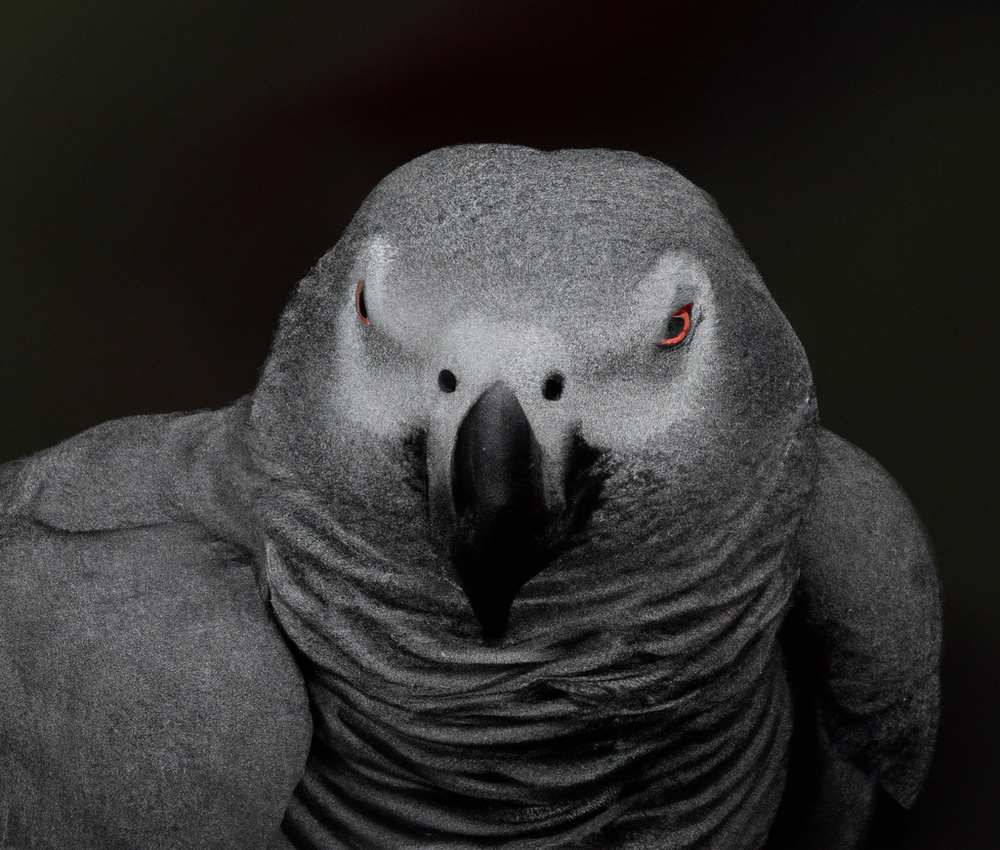
Engaging Your Parrot in Interactive Toys and Activities
Engaging your parrot in interactive toys and activities is essential for their physical and mental well-being. Here are some ideas to keep your parrot entertained and stimulated:
- Provide a variety of toys: Offer toys that encourage exploration, problem-solving, and physical activity. Toys with bells, ropes, and puzzles can be great choices.
- Rotate toys regularly: Switching out toys every few days will keep your parrot’s environment fresh and prevent boredom.
- Offer foraging opportunities: Use foraging toys or hide treats in different parts of their cage to stimulate their natural instincts.
- Playtime outside the cage: Allow your parrot supervised time outside their cage to stretch their wings and explore their surroundings. Ensure the area is safe and free from hazards.
- Teach tricks and commands: Training sessions can provide mental stimulation and strengthen the bond between you and your parrot. Start with basic commands like “step up” and gradually progress to more complex tricks.
- Social interaction: Parrots are highly social creatures, so spend quality time interacting with them. Talk to them, sing, or simply sit near their cage while you read or watch TV.
Remember, each parrot is unique, so observe and understand your bird’s preferences and adjust their toys and activities accordingly. Regularly engaging them in interactive play will help prevent boredom and promote a happy and healthy parrot.
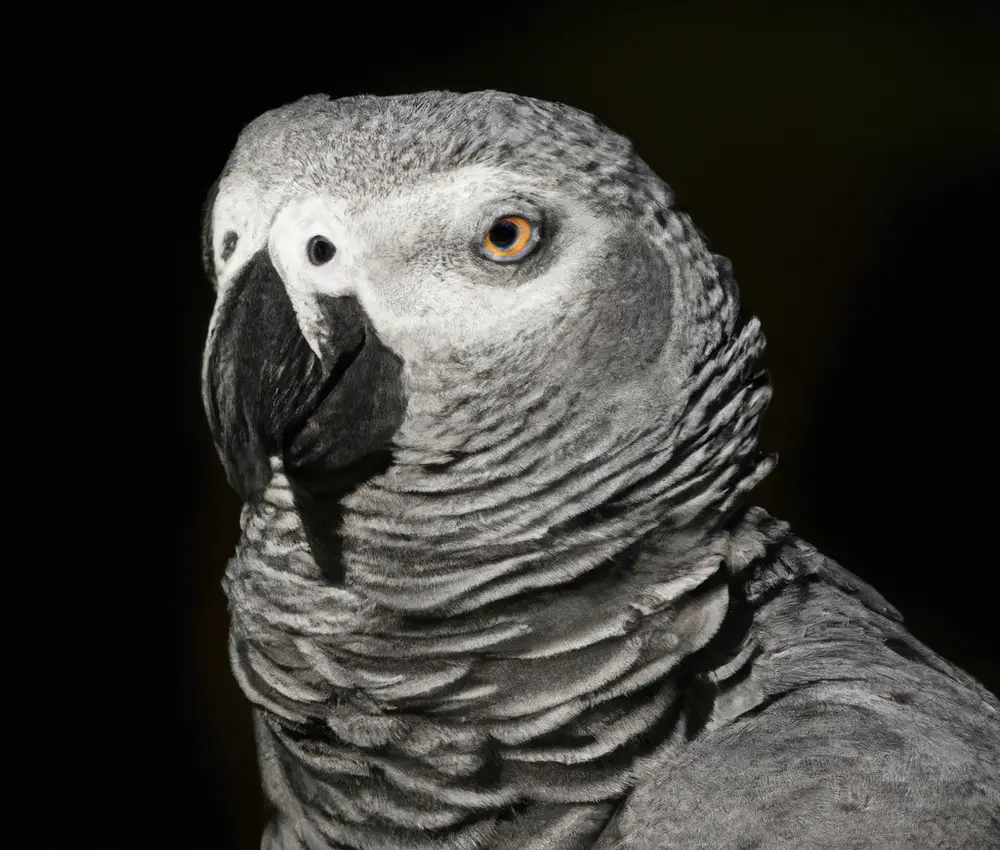
Training and Enrichment for Physical and Mental Well-being
Training and enrichment play a crucial role in promoting physical and mental well-being in African Grey Parrots. By engaging in regular training sessions, you can help stimulate their minds and keep them mentally active.
Teaching your parrot new tricks and commands not only provides mental stimulation but also strengthens the bond between you and your feathered friend.
Additionally, providing a variety of toys and activities that encourage physical exercise is essential. This can include puzzle toys, foraging toys, and climbing structures to keep your parrot active and prevent boredom.
By incorporating these training and enrichment strategies into your parrot’s daily routine, you will help ensure their overall well-being.
Monitoring Your Parrot’s Health and Weight
Regularly monitor your parrot’s health and weight to ensure they stay in good condition.
Regular Veterinary Check-ups for Your Parrot
Regular veterinary check-ups are essential for the health and well-being of your parrot.
A qualified avian veterinarian will perform a thorough examination and provide necessary vaccinations.
They can also detect any early signs of illness or obesity, ensuring that your parrot receives prompt treatment.
These check-ups should be done at least once a year, but more frequent visits may be necessary for older birds or those with existing health conditions.
Regular check-ups are crucial for maintaining your parrot’s overall health and preventing potential health problems.
Recognizing the Signs of Obesity in African Grey Parrots
Recognizing the signs of obesity in African Grey Parrots is important for their overall health. Look for symptoms like difficulty flying, waddling gait, and a distended abdomen.
Feel their keel bone to check if it’s covered by excess fat.
Pay attention to changes in appetite and excessive begging for food. Regular monitoring helps catch obesity early.
Tracking Your Parrot’s Weight to Prevent Obesity
Tracking your parrot’s weight is a crucial step in preventing obesity.
Regularly weigh your parrot using a digital scale designed for small animals.
Aim for a consistent weight range by monitoring trends over time.
Consult a veterinarian if you notice any significant weight changes or signs of obesity.
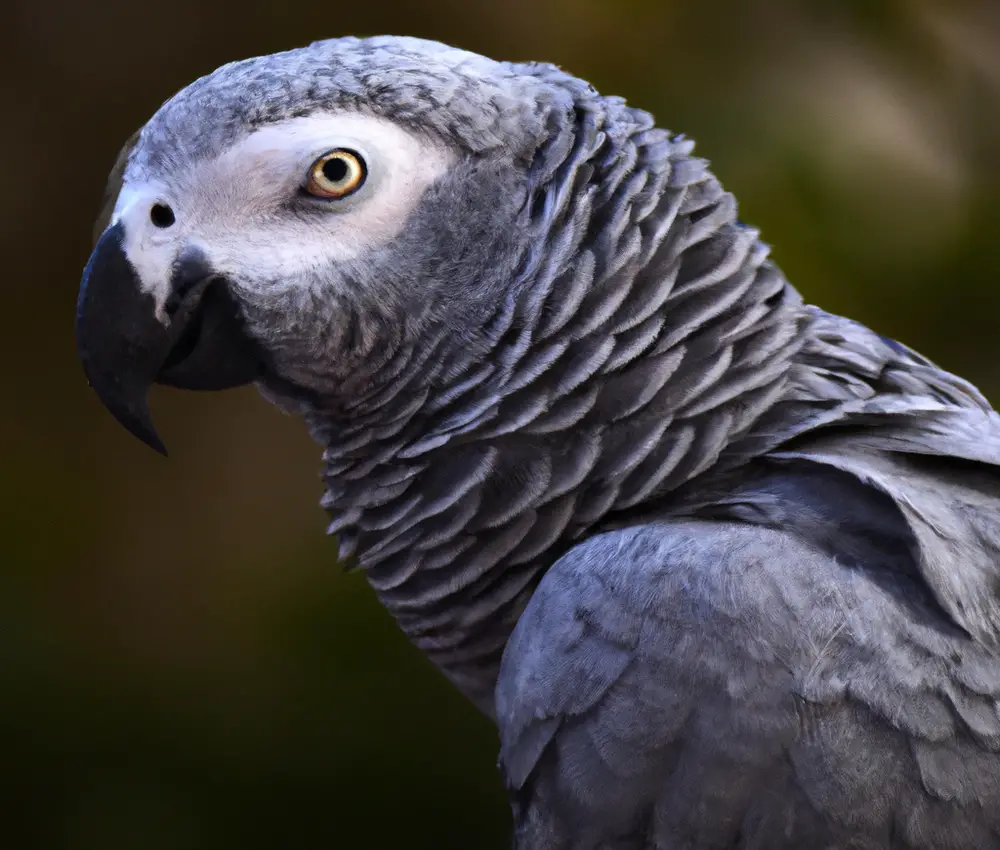
Frequently Asked Questions
Can African Grey Parrots Eat Fruits and Vegetables?
Yes, African Grey Parrots can definitely eat fruits and vegetables. In fact, incorporating a variety of fruits and vegetables into their diet is important for their overall health and nutrition.
Just make sure that the fruits and vegetables are properly washed, and remove any seeds or pits that may be toxic to them.
Some safe options include apples, bananas, carrots, spinach, and broccoli. Remember to introduce new foods gradually and in moderation to prevent any digestive issues.
How Many Hours of Exercise Does a Parrot Need Daily?
African Grey Parrots should ideally get at least 2-4 hours of exercise daily. This includes both physical activity and mental stimulation.
Provide them with enough space to move around, engage them in interactive toys and activities, and consider training sessions for their well-being.
Can Obesity Lead to Other Health Problems in African Grey Parrots?
Yes, obesity can lead to other health problems in African Grey Parrots.
It puts them at a higher risk for conditions like fatty liver disease, heart disease, diabetes, and joint problems.
Obesity can also decrease their overall lifespan and quality of life.
It’s important to prevent and manage obesity to keep your parrot healthy.
Are There Any Weight Loss Diets Specifically Designed for Parrots?
Yes, there are weight loss diets specifically designed for parrots. These diets are formulated to provide lower calorie options while still meeting the nutritional needs of the parrot.
They typically include a balance of fruits, vegetables, grains, and lean proteins, but in controlled portions to promote weight loss.
Consult with a veterinarian for a specialized weight loss diet plan for your parrot.
Final Verdict
Preventing obesity in African Grey Parrots requires a combination of a healthy diet, regular exercise, and monitoring their weight and overall health.
By selecting nutritious foods, controlling portion sizes, and introducing variety in their diet, you can ensure optimal nutrition for your parrot.
Providing ample space for them to move, engaging them in interactive toys, and providing training and mental enrichment are crucial for keeping them active and mentally stimulated.
Regular veterinary check-ups, recognizing the signs of obesity, and tracking their weight will help in early detection and prevention.
Finally, addressing common misconceptions and seeking professional advice will ensure that your parrot’s specific dietary needs are met.
Taking proactive steps to prevent obesity in your African Grey Parrot will contribute to their overall well-being and longevity.

